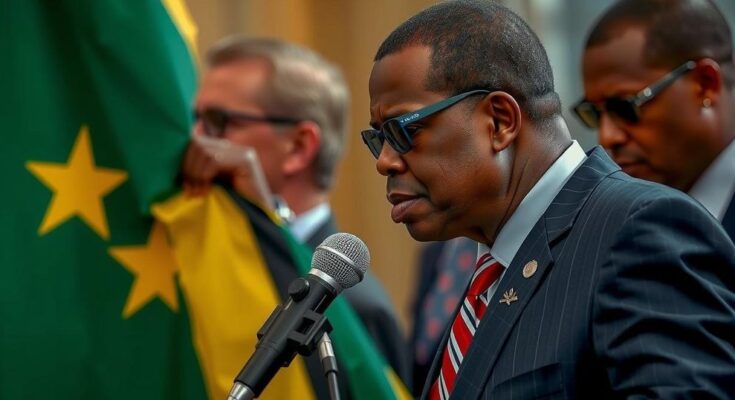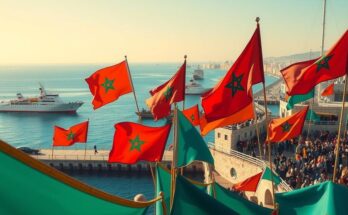Zimbabwe is accused of interfering in the elections of neighboring countries such as Botswana, Namibia, and Mozambique. The ruling Zanu-PF party is alleged to be providing campaign support and participating in election processes. The political involvement has led to protests in Namibia over potential manipulation of election outcomes and allegations of rigging in Botswana. Despite denials from the Zimbabwean government, tensions persist over regional electoral integrity and sovereignty.
Zimbabwe is facing allegations of electoral interference by opposition groups from Botswana, Namibia, and Mozambique. The ruling party, Zanu-PF, maintains close ties with other regional parties and has reportedly engaged in activities to bolster their interests in these neighboring countries’ elections. As one of the last remaining liberation movements in Southern Africa, Zanu-PF claims it is defending the region against neo-colonialism. The party sent campaign teams to support Mozambique’s ruling Frelimo party ahead of its October 9 elections and reportedly participated in the voting processes due to a diaspora system that allowed them to vote in Mozambique. In Botswana, Zanu-PF members have campaigned alongside President Mokgweetsi Masisi’s Botswana Democratic Party ahead of elections scheduled for October 30. Furthermore, protests erupted in Namibia against a South African company contracted for printing ballot papers due to alleged connections with Zimbabwe’s ruling party. Earlier this year, Zanu-PF convened a meeting of Southern African Development Community (SADC) liberation parties to unite against perceived threats from colonizers, highlighting their influence within the region. Former Botswana President Ian Khama has publicly denounced Zimbabwe’s involvement in local elections, raising concerns about potential election rigging. In contrast, Job Sikhala, a prominent opposition leader in Zimbabwe, urged SADC to intervene, claiming that Zanu-PF’s actions constitute interference in sovereign states’ affairs. Zimbabwe’s government, represented by spokesman Nick Mangwana, refuted these allegations, stating that their participation is strictly within the framework of SADC observer missions and aimed at supporting democratically elected governments. Tensions escalated when Zimbabwe accused Zambian President Hakainde Hichilema’s administration of interfering in their recent elections. This diplomatic rift further complicates relations within the region, especially following controversial comments made by President Mnangagwa regarding Zambian ties with Western nations. Overall, Zimbabwe finds itself at the center of escalating accusations of election meddling across its borders, raising questions about its role and the implications for regional stability in Southern Africa.
The political landscape in Southern Africa is marked by historical ties among liberation movements, which often influence current electoral processes. Zimbabwe’s Zanu-PF party, having a notable legacy as a ruling liberation faction, is accused of attempting to extend its influence into neighboring countries’ elections. Allegations arise from its associations with party counterparts such as Frelimo in Mozambique and the Botswana Democratic Party. These circumstances highlight the complex interplay between regional politics, historical legacy, and ongoing allegations of electoral interference—which reflect deeper issues of sovereignty and democracy within the region. As Zimbabwe chairs the SADC, its actions are closely scrutinized amid tensions arising from claims of influence and interference in local electoral processes.
In conclusion, Zimbabwe’s alleged interference in the electoral processes of its neighbors has sparked significant controversy, eliciting strong reactions from local opposition parties and former leaders. The claims underscore a broader concern regarding the sanctity of democratic processes in the Southern African region. The Zimbabwean government’s denial and assertion of its diplomatic engagements stress the complexity of navigating regional politics where historical legacies often resurface. As elections unfold, the international community will be watching closely to assess the implications of these developments on democracy and stability within Southern Africa.
Original Source: www.theeastafrican.co.ke




